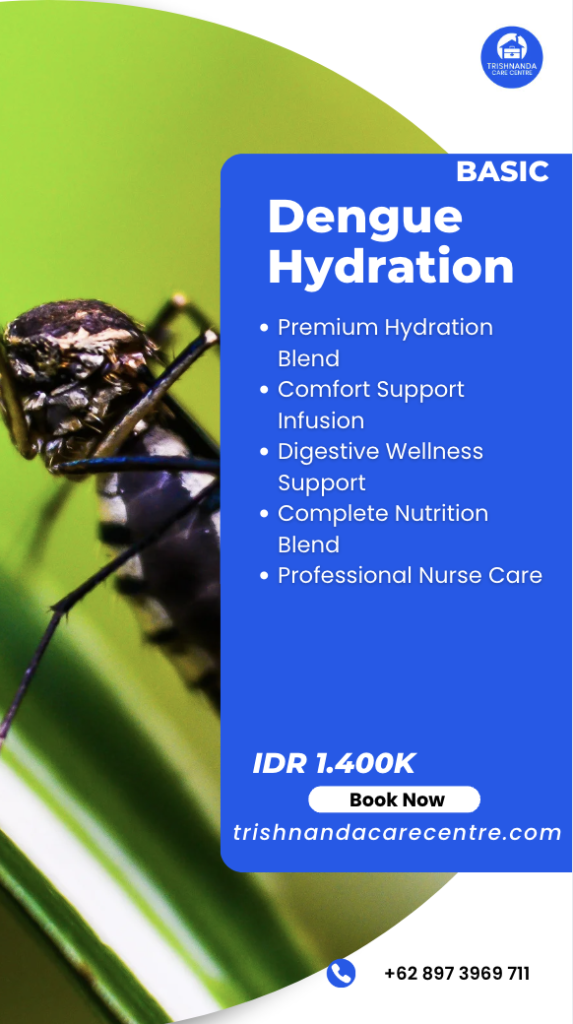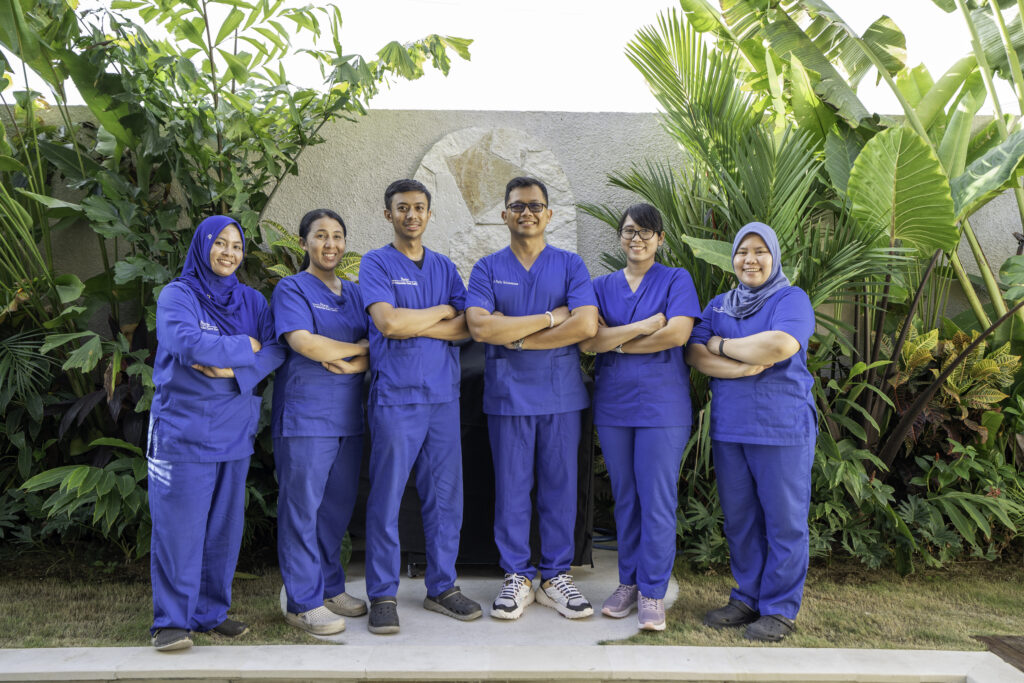
Layanan IV Hangover di Bali: Kapan Cocok dan Kapan Harus Periksa Dulu
Bangun dengan hangover parah di Bali? Matahari Januari 2026 baru saja mengintip di balik rimbunnya pepohonan di villa Anda di
Bali, the iconic Indonesian island, is a popular destination for travelers seeking breathtaking landscapes, rich culture, and unforgettable experiences. However, amidst the excitement of exploring this tropical paradise, it’s crucial to prioritize your health and well-being.
In this ultimate Bali health guide for 2024, we’ll provide you with 10 essential tips on what to do if you encounter common health concerns, such as monkey bites, dengue fever, wounds, and more. By following these guidelines and knowing when to seek professional medical assistance, you can ensure a safe and enjoyable trip to Bali.
Bali’s famous monkey forests are a must-see attraction, but it’s essential to be cautious when interacting with these mischievous primates. If you are bitten by a monkey:

Dengue fever is a mosquito-borne illness common in Bali. To reduce your risk of infection:
Accidents can happen, and proper wound care is crucial to prevent infections. If you get a cut or scrape:
If you require blood tests or lab work during your stay in Bali, Trishnanda Care Centre offers a wide range of services, including:
Bali belly, or traveler’s diarrhea, is a common ailment among visitors. To minimize your risk:
If you overindulge in Bali’s nightlife and find yourself battling a hangover:
Bali’s humid climate and water activities can lead to ear infections. To prevent and treat them:
Bali’s tropical climate means strong sun exposure. Protect your skin by:
Dehydration can be a serious concern in Bali’s heat. To stay hydrated:
While many health concerns can be managed with self-care, there are times when professional medical assistance is necessary. Contact Trishnanda Care Centre immediately if you experience:
By following these 10 essential health tips and being prepared for common concerns, you can minimize risks and maximize your enjoyment during your Bali trip in 2024. Remember, prevention is key, but if you do experience health issues, don’t hesitate to reach out to Trishnanda Care Centre.
With their extensive range of services, experienced medical professionals, and convenient mobile treatments, Trishnanda Care Centre is your trusted partner in maintaining optimal health throughout your Bali adventure. Book your treatment now.

If you are bitten by a monkey in Bali, immediately wash the wound thoroughly with soap and clean water for at least 15 minutes. Seek medical attention promptly, as monkey bites can transmit serious diseases like rabies. Consider getting the rabies vaccine, especially if you haven’t been vaccinated before your trip.
To reduce your risk of dengue fever, use insect repellent containing DEET, picaridin, or oil of lemon eucalyptus. Wear long-sleeved shirts and long pants, especially during peak mosquito hours. If you suspect you have dengue fever, characterized by high fever, severe headache, and joint pain, seek medical attention promptly.
If you get a cut or scrape, clean the wound thoroughly with clean water and mild soap. Apply an antiseptic solution and cover the wound with a sterile bandage. Monitor the wound for signs of infection, such as redness, swelling, or discharge. For severe wounds or signs of infection, contact Trishnanda Care Centre for professional wound care treatments.
To minimize your risk of Bali belly, drink only bottled or boiled water and avoid ice cubes. Eat at reputable restaurants and be cautious with street food. Wash your hands frequently or use hand sanitizer. If you experience severe or persistent symptoms, contact Trishnanda Care Centre for prompt medical assistance.
Contact Trishnanda Care Centre immediately if you experience high fever (above 38°C/100.4°F), severe or persistent vomiting or diarrhea, signs of infection (redness, swelling, or discharge from a wound), difficulty breathing or chest pain, or confusion, disorientation, or loss of consciousness.

Bangun dengan hangover parah di Bali? Matahari Januari 2026 baru saja mengintip di balik rimbunnya pepohonan di villa Anda di

Kapan waktu terbaik untuk melakukan tes NS1? Tes NS1 (Dengue Early Antigen) paling akurat dilakukan dalam 1 hingga 3 hari
Contact Our Doctor Now